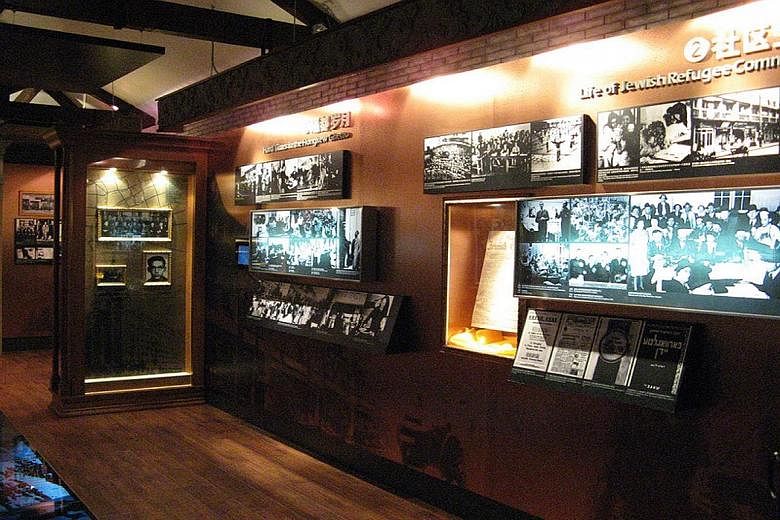SHANGHAI • China is heavily promoting Shanghai's role in sheltering European Jews from the Nazis as part of its commemorations for the 70th anniversary of victory over Japan, which will culminate in a huge military parade.
As the "port of last resort", China's commercial hub provided a home to tens of thousands of Jewish refugees who fled persecution in Europe during the 1930s and 1940s.
Nazi Germany's wartime ally Japan took over the city in 1941 and later moved 20,000 Jews into a "designated area" - called a ghetto by some - in the northern district of Hongkou, where they lived alongside Chinese residents.
Despite cramped living conditions and mistreatment by the Japanese authorities, they were spared systematic extermination in defiance of requests from Berlin.
"Shanghai saved our lives," said former Jewish refugee Judy Kolb, who lived in the ghetto as a child.
An exhibition will be launched tomorrow at the Shanghai Jewish Refugees Museum. Next month, a musical called Jews In Shanghai and a memorial park will open.
"Shanghai was the only city foreigners could get into without visas, even without passports - the only city that opened the door," said Mr Pan Guang, dean of the Centre of Jewish Studies in Shanghai.
The narrative appeals to the Shanghai authorities as the metropolis seeks to turn itself into an "international city" and in light of China's tense ties with Japan, which Beijing views as insufficiently contrite for its wartime atrocities.
"The Jewish refugee story is a natural choice for this kind of commemoration, as it has many 'feel good' elements, including overcoming hardship and friendship between Chinese and foreigners," journalism professor Doug Young, of Fudan University, wrote in The Shanghai Daily newspaper.
Shanghai's commemoration events will be held around a giant military parade in Beijing on Sept 3, expected to be attended by Russian President Vladimir Putin, but few other major world leaders, to mark the end of what Beijing calls the "Chinese People's War of Resistance against Japanese Aggression and the World Anti-Fascist War". At the time, however, China's now ruling Communist Party was largely an underground movement and it had little involvement with the Jewish settlement in Shanghai.
Before the Japanese takeover, the city included the British-dominated International Settlement and the French Concession, while the Chinese area was administered by the Kuomintang (KMT), the communists' enemy.
Mr Feng Shan Ho, China's KMT-appointed consul-general in Vienna on the eve of World War II, is credited with offering refuge to several thousand Jews by issuing visas which allowed them to leave Austria. Mr Ho fled to Taiwan when the KMT lost China's civil war to Mao Zedong's forces in 1949.
AGENCE FRANCE-PRESSE

